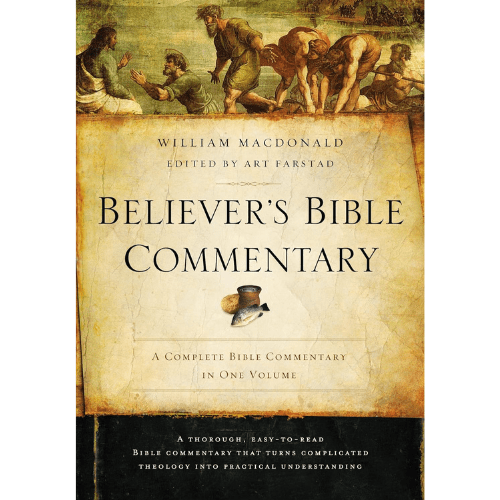- Writer of the Book of Acts
- Date Written
- To Whom Written
- Purpose of the Book of Acts
- Historical Context
- Key Themes in the Book of Acts
- Major Events/Stories in the Book of Acts
- Theological Contributions in the Book of Acts
- Special Consideration in the Book of Acts
- Book of Acts Conclusion
- Frequently Asked Questions (FAQ) About the Book of Acts
Have you ever wondered how the early church managed to spread the message of Jesus so far and wide despite facing so many challenges? The Book of Acts holds the key to this fascinating story. Together, we’ll explore this incredible book that bridges the Gospels and the letters of the New Testament, showing us how the message of Christ moved from a small group of followers in Jerusalem to the ends of the Roman Empire.
The Book of Acts is more than just a historical record; it’s the continuation of the story that began in the Gospel of Luke. Written by Luke, the same author who carefully documented the life and teachings of Jesus, Acts picks up right where Luke left off. It’s like the second volume in a two-part series that shows us the power of the Holy Spirit at work through ordinary people doing extraordinary things.
In our study, we’ll see why Acts is so significant in the New Testament. It’s the only book that provides a detailed account of the early church’s formation, growth, and challenges. Acts is essential for understanding how the teachings of Jesus were put into practice, how the apostles carried out their mission, and how the church grew from a small Jewish sect into a global movement.
Writer of the Book of Acts
The authorship of the Book of Acts is traditionally attributed to Luke, a physician and close companion of the Apostle Paul. Luke’s profession as a doctor is mentioned in Colossians 4:14, reflecting his meticulous attention to detail, which is evident in his writing. The Book of Acts is widely regarded as the sequel to the Gospel of Luke, forming a two-part work that traces the life of Jesus and the early church’s expansion.
The connection between the Gospel of Luke and the Book of Acts is clear from the opening verses of each book, both addressed to Theophilus. This suggests that the same author intended to provide a comprehensive account of Christianity’s origins. Additionally, the “we” passages in Acts, where the author includes himself in the narrative, align with Luke’s known travels with Paul, further supporting his authorship.
Scholarly consensus and early church tradition consistently affirm Luke as the author. His careful documentation, coherent narrative style, and unique perspective as a Gentile convert provide invaluable insight into the spread of the Gospel and the role of the Holy Spirit in the early church. Thus, the Book of Acts remains a vital source for understanding the growth of Christianity.
Date Written
The Book of Acts was likely composed between 60-70 A.D., a time frame that provides critical insights into its historical context. The dating of Acts is influenced by several factors, including the events it records and those it omits. Notably, the book ends abruptly with Paul under house arrest in Rome, around 62 A.D., without mentioning his death or the destruction of the Jerusalem Temple in 70 A.D. These omissions suggest that Acts was written before these significant events occurred, supporting the earlier dating.
Understanding when the Book of Acts was written helps us grasp the immediacy of its narrative and the challenges the early church faced. The lack of references to later events indicates that Luke was documenting contemporary history, offering a snapshot of the church’s expansion and struggles during a time of great uncertainty. The dating also underscores the authenticity of Acts as a firsthand account of the apostles’ actions and the spread of the Gospel.
By placing Acts within this historical window, we better appreciate its role in bridging the gap between the life of Jesus and the development of the early Christian community, making it an essential resource for understanding the New Testament.
Believer’s Bible Commentary
Make Bible study a part of your daily life with the thorough yet easy-to-read commentary that turns complicated theology into practical understanding.
To Whom Written
The Book of Acts was addressed to a man named Theophilus, the same individual to whom the Gospel of Luke was dedicated. Theophilus, whose name means “lover of God,” may have been a prominent Gentile believer or a Roman official seeking a detailed account of the early Christian movement. By addressing Acts to Theophilus, Luke provides a continuation of the narrative begun in his Gospel, documenting the life of Jesus and the subsequent spread of Christianity.
While Theophilus is the immediate recipient, the intended audience of the Book of Acts extends far beyond him. Acts was written for early Christians, both Jews and Gentiles, who needed encouragement, instruction, and a clearer understanding of how the church was to function in a diverse and often hostile world. The book’s detailed accounts of the apostles’ actions and the spread of the Gospel were meant to strengthen the faith of believers and guide them in their own missionary efforts.
Moreover, Acts was crafted with a broader readership in mind, encompassing both Jewish and Gentile audiences. By showcasing the inclusion of Gentiles into God’s covenant community, Acts emphasizes the universal scope of the Gospel, making it relevant to all who seek to understand the foundations of the Christian faith.
Purpose of the Book of Acts
The purpose of the Book of Acts is multifaceted, serving as both a historical record and a source of encouragement and instruction for early believers. Primarily, Acts documents the history and expansion of the early church, detailing how the apostles, empowered by the Holy Spirit, spread the message of Jesus Christ. Beginning in Jerusalem, the Gospel’s reach extends through Judea and Samaria, ultimately arriving in Rome, the heart of the Roman Empire. This geographical progression illustrates the fulfillment of Jesus’ command to be His witnesses “to the ends of the earth” (Acts 1:8).
In addition to recording historical events, the Book of Acts demonstrates the power and resilience of the early Christian community in the face of persecution and opposition. It highlights the work of the Holy Spirit, the inclusion of Gentiles into the faith, and the missionary efforts of figures like Peter and Paul.
Moreover, Acts was written to encourage and instruct early believers. By showing how the early church overcame obstacles and continued to grow, Acts provides a model of faith and perseverance for Christians. It reinforces the message that the Gospel is for all people and that God’s plan will prevail despite challenges, offering timeless lessons for believers today.
Historical Context
The Book of Acts is set within the vast and complex environment of the Roman Empire, a context that significantly shaped the early church’s development. During the first century, the Roman Empire was a powerful and expansive entity, with a relatively stable political structure that allowed for the spread of ideas and the movement of people across vast distances. This enabled the apostles and early Christians to travel extensively, spreading the Gospel from Jerusalem to Rome.
Jewish and Gentile relations during this time were tense and often marked by deep-seated divisions. The early church, initially composed mainly of Jewish believers, faced the challenge of integrating Gentiles into the faith. The Book of Acts records pivotal moments, such as Peter’s vision in Acts 10 and the Jerusalem Council in Acts 15, where the church leaders grappled with how to welcome Gentiles without requiring them to adhere to all Jewish customs.
The political and social climate of the Roman Empire also played a crucial role in shaping the early church’s experiences. Christians often faced persecution, both from Jewish authorities and the Roman government, yet this adversity contributed to the church’s growth and spread. The Book of Acts vividly captures this dynamic environment, highlighting the challenges and triumphs of the early believers as they navigated a world fraught with cultural and political complexities.
Key Themes in the Book of Acts
The Book of Acts is rich with key themes that are foundational to understanding the early church’s development and the spread of Christianity. One of the central themes is the role of the Holy Spirit in the church’s growth. From the very beginning at Pentecost, where the Holy Spirit empowers the apostles to speak in various languages (Acts 2), to guiding decisions and emboldening believers, the Holy Spirit is depicted as the driving force behind the church’s expansion and the believers’ ability to witness effectively.
Another significant theme in the Book of Acts is the transition from a predominantly Jewish mission to a Gentile one. Initially, the early church was centered in Jerusalem and composed mainly of Jewish converts. However, as the narrative progresses, the focus shifts towards reaching Gentiles, beginning with Peter’s vision and encounter with Cornelius (Acts 10) and culminating in Paul’s missionary journeys. This transition underscores the inclusive nature of the Gospel, showing that salvation through Jesus is available to all, regardless of cultural or ethnic background.
The importance of apostolic authority and witness is also a key theme. The apostles, particularly Peter and Paul, are portrayed as authoritative figures whose teachings and actions are vital in establishing the early church. Their witness, often confirmed by signs and miracles, legitimizes their message and serves as a foundation for the faith of early believers. The Book of Acts emphasizes that the church’s growth and doctrinal development are rooted in the apostolic testimony to the resurrection and teachings of Jesus. These themes collectively illustrate the dynamic power of the Gospel as it spread from Jerusalem to the ends of the earth.
Error, group does not exist! Check your syntax! (ID: 02)Major Events/Stories in the Book of Acts
The Book of Acts is filled with major events and stories that shaped the early church and propelled the spread of Christianity. One of the first significant events is the Ascension of Jesus in Acts 1. Before ascending into heaven, Jesus gives His disciples the Great Commission, instructing them to be His witnesses “in Jerusalem, and in all Judea and Samaria, and to the ends of the earth” (Acts 1:8). This moment sets the stage for the entire narrative of Acts, as the disciples prepare to carry out this mission.
Next, in Acts 2, we witness the coming of the Holy Spirit at Pentecost. This event marks the birth of the church, as the Holy Spirit empowers the apostles to speak in various languages, allowing them to communicate the Gospel to a diverse crowd in Jerusalem. The powerful sermon by Peter that follows leads to the conversion of about 3,000 people, demonstrating the immediate impact of the Holy Spirit’s work.
A pivotal story in the Book of Acts is the conversion of Paul in Acts 9. Saul, a fierce persecutor of Christians, encounters the risen Christ on the road to Damascus. This dramatic encounter blinds him and leads to his transformation into Paul, one of the most influential apostles. Paul’s conversion is a turning point in Acts, marking the beginning of his extensive missionary work.
The Jerusalem Council in Acts 15 is another major event. Faced with the question of whether Gentile converts must follow Jewish customs, the council concludes that Gentiles do not need to be circumcised or fully adhere to the Mosaic Law to be saved. This decision is crucial for the church’s growth, as it affirms the inclusivity of the Gospel and removes barriers for Gentile believers.
Finally, the Book of Acts details Paul’s missionary journeys and trials, which occupy a significant portion of the narrative. Paul embarks on multiple journeys across the Roman Empire, preaching the Gospel, establishing churches, and facing numerous trials and persecutions. His missionary work, documented in Acts, significantly contributes to the spread of Christianity beyond Jewish communities and into the broader Gentile world.
Theological Contributions in the Book of Acts
The Book of Acts offers profound theological contributions and insights that have shaped Christian understanding and practice throughout history. One of the most significant contributions is the work of the Holy Spirit in empowering believers. Acts vividly illustrates how the Holy Spirit plays a central role in guiding, empowering, and emboldening the apostles and early Christians. From the dramatic outpouring at Pentecost (Acts 2) to the Spirit’s guidance in decisions and missionary endeavors, Acts demonstrates that the growth and vitality of the church are driven by the Holy Spirit’s presence and power.
Another crucial theological insight from the Book of Acts is the inclusion of Gentiles in the people of God. This theme is most prominently seen in the conversion of Cornelius, a Gentile, in Acts 10, and the subsequent Jerusalem Council in Acts 15, where it is affirmed that Gentiles can be full members of the Christian community without adhering to all Jewish customs. This inclusion reflects the fulfillment of God’s promise to Abraham that all nations would be blessed through his offspring and underscores the universal nature of the Gospel.
The Book of Acts also emphasizes the role of baptism and repentance as foundational responses to the Gospel. Peter’s sermon at Pentecost calls listeners to “repent and be baptized, every one of you, in the name of Jesus Christ for the forgiveness of your sins” (Acts 2:38). Throughout Acts, baptism is consistently presented as an outward expression of an inward transformation and a public declaration of faith in Jesus Christ. Repentance is similarly central, marking a turn from sin toward a new life in Christ.
Lastly, Acts presents the church as the continuation of God’s covenant community. The early church is depicted as the new people of God, continuing the story of Israel but now expanded to include both Jews and Gentiles. This continuation is seen in the fulfillment of Old Testament prophecies through the life, death, and resurrection of Jesus, and the establishment of the church as a diverse but unified body of believers. Acts portrays the church not as a break from Israel’s history, but as its fulfillment in Christ, forming a new covenant community that carries forward God’s redemptive purposes.
Special Consideration in the Book of Acts
The Book of Acts contains several special considerations that offer deeper insights into its content and authorship. One notable feature is the presence of the “we” passages—sections of the narrative where the author shifts from third-person to first-person plural, as seen in passages like Acts 16:10-17. These “we” passages suggest that the author, traditionally identified as Luke, was a companion of Paul and an eyewitness to some of the events described. This firsthand perspective lends credibility and a unique richness to the narrative, reinforcing the traditional view of Luke’s authorship.
Another special consideration in the Book of Acts is the speeches of Peter and Paul, which serve as theological summaries of the early Christian message. These speeches, including Peter’s sermon at Pentecost (Acts 2) and Paul’s address in Athens (Acts 17), are not just historical recounts but also encapsulate key theological themes such as the resurrection of Jesus, the fulfillment of prophecy, and the call to repentance. These speeches provide a window into the core teachings of the early church and how the apostles communicated the Gospel to both Jewish and Gentile audiences.
The tension between Jewish customs and Christian freedom is another critical theme in the Book of Acts. As the early church grew, it faced the challenge of integrating Gentile converts while maintaining its Jewish roots. This tension is evident in debates over practices like circumcision and dietary laws, culminating in the Jerusalem Council (Acts 15). The council’s decision to not impose Jewish customs on Gentile believers was a pivotal moment, affirming the church’s commitment to Christian freedom and the universality of the Gospel. This tension, and its resolution, played a crucial role in defining the identity and practices of the early Christian community.
Book of Acts Conclusion
In conclusion, the Book of Acts has had a profound impact on Christian theology, offering crucial insights into the early church’s formation, the role of the Holy Spirit, and the spread of the Gospel. Acts serves as a bridge between the Gospels and the Epistles, documenting the apostles’ work in establishing the church and shaping its foundational beliefs. Its theological contributions, particularly regarding the inclusion of Gentiles, the function of baptism and repentance, and the continuation of God’s covenant community, have deeply influenced Christian thought and practice.
The enduring relevance of the Book of Acts for the modern church cannot be overstated. Its lessons on unity, mission, and reliance on the Holy Spirit continue to resonate with believers today, providing guidance and inspiration for living out the Christian faith in a diverse and often challenging world. Acts also serves as a powerful reminder of the church’s mission to spread the Gospel to all nations, echoing the apostles’ unwavering commitment to this cause.
We encourage readers to explore the Book of Acts further in their study, delving into its rich narrative and theological depth. Whether you’re seeking historical context, spiritual insight, or practical guidance, Acts offers a treasure trove of wisdom for believers at every stage of their faith journey.
Frequently Asked Questions (FAQ) About the Book of Acts
What is the main purpose of the Book of Acts? The Book of Acts aims to document the early church’s history, highlighting the spread of the Gospel from Jerusalem to Rome. It also serves to encourage and instruct early believers by showcasing how the Holy Spirit empowered the apostles to carry out their mission.
Who wrote the Book of Acts, and how is it connected to the Gospel of Luke? The Book of Acts is traditionally attributed to Luke, a physician and companion of the Apostle Paul. Acts is the second part of a two-volume work, with the Gospel of Luke being the first. Together, they provide a continuous narrative of Jesus’ life and the early church’s growth.
Why is the Book of Acts important for understanding the early church? Acts is crucial because it bridges the Gospels and the Epistles, offering detailed accounts of the apostles’ actions, the role of the Holy Spirit, and the church’s expansion. It also addresses key theological issues, such as the inclusion of Gentiles and the role of apostolic authority.
What are some of the key themes in the Book of Acts? Key themes include the work of the Holy Spirit, the transition from a Jewish-centered mission to a Gentile-inclusive one, the importance of baptism and repentance, and the church as the continuation of God’s covenant community.
How can studying the Book of Acts benefit modern Christians? Studying Acts can deepen your understanding of the church’s origins, inspire you through the apostles’ example of faith and perseverance, and provide valuable lessons on unity, mission, and reliance on the Holy Spirit in today’s world.




